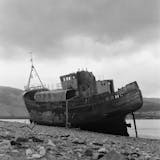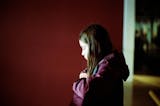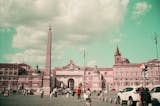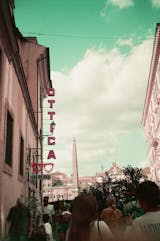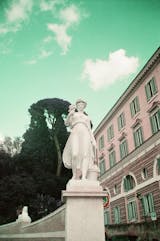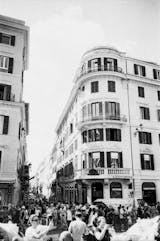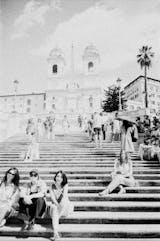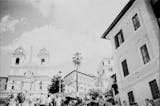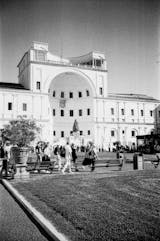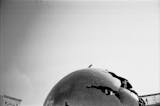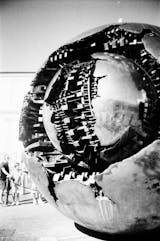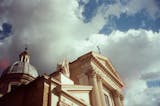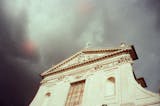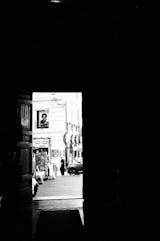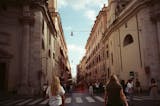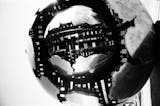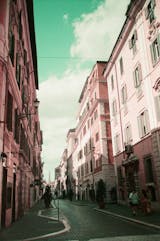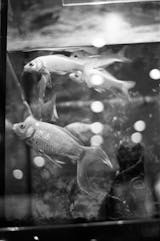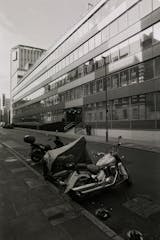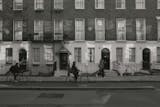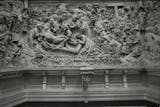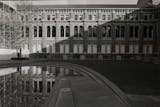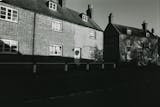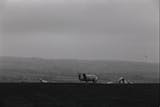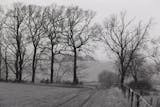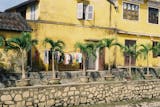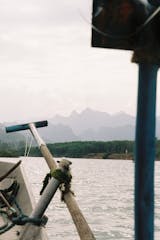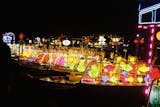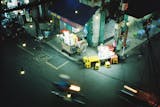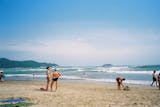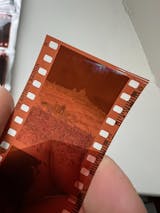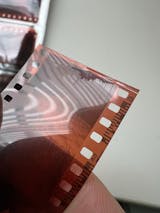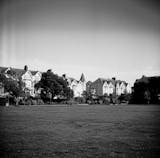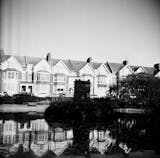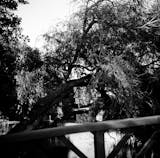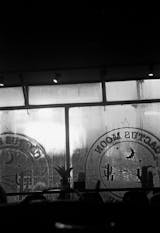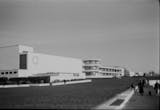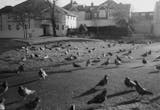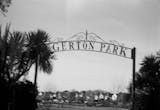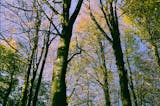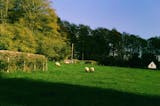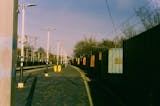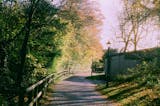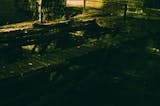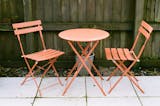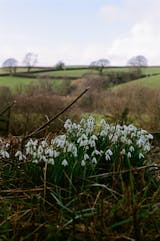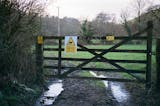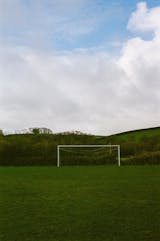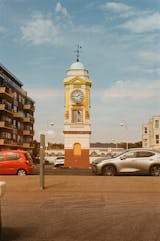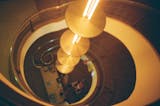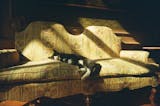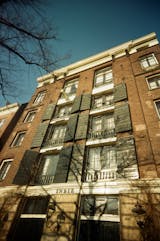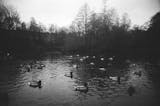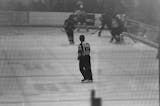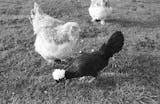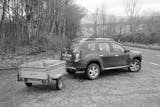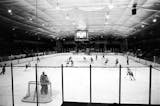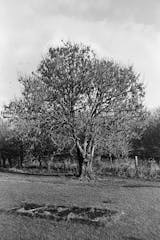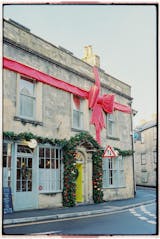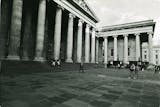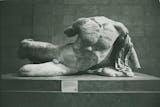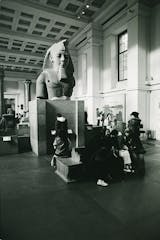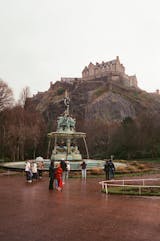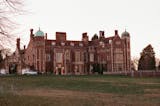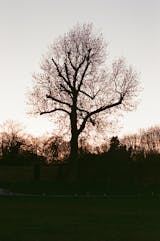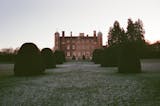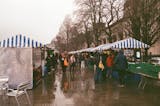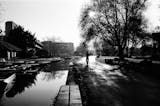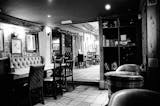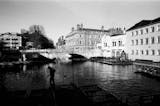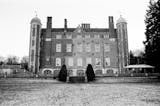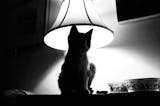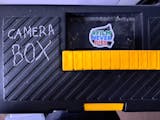I was put off Kentmere after trying to push it to 3200 and screwing up the development a fee years ago. That was before it was in 120 format. I pushed this to 800 and the results were fantastic. A very flexible film for a great price.
I used Kodak Portra 160 in a Pentax MX to take a few photos at the National Museum of Scotland accompanied by my partner and daughter. As usual I love the natural colours that Portra 160 produces.
I ended up having to be very careful with setting up my shots as 160 ISO was a little slow for the interior of the Museum. The sample photo I have uploaded was taking with an f1.4 50mm Pentax-M lens set to f1.4. Even then I had to wedge myself against a railing to take a shake free exposure of a 15th of second. The colour and lack of overt grain in the resulting picture make the effort worth it.
I have previously in 2025 used Portra 160 to take photos of wild flowers in the autumn sunshine. I would say that the film is more easily used in these conditions given its film speed and gives excellent natural results.
The name of this product pretty much sums up what one should expect. Funky pictures, fun time!
I really liked this! From a great film analogue company arrives an excellent 35mm roll film. Great job! Handles shadows very well, while in extreme sunlight, it looked very bleached and toasted, in beautiful way.
Perfect for contrast-y, sunlight heavy photography. Shadows and contrast pulled up to the max. Not a bad film.
It's colour palette leans towards red & warm tones, due to being daylight balanced film. I really like it. I buy this occasionally.
Very consistent and great photo quality. My main 35mm photography developer and scanner.
#1: Old Shutter Hand 200
#2: Mr Negative Daylight Robbery
#3: Lucky SHD 400
#4: Lomography Purple
#5: Kentmere 400
Great for fine detail and excellent contrast. Does a great job in full sun and in subdued interiors. Flexible and reliable. This is definitely one of my favourite B&W film stocks. I can see this becoming my go-to film for B&W shooting.
Shot this film during a damp and murky winter. I didn't find much photographic inspiration and so probably did not get the best out of it. It has good dynamic range and holds onto detail in shadows very well and offers a good range of grey tones. It has a medium grain I would say. Probably won't come back to this for a while but might return to it if we ever see the sun again.
Relatively cheap film with great colours and is so versatile in both day and night. My new go to!
I can't express how truly awful this product is. It was put aside and I waited a month to use it otherwise I would return it immediately as it's not even remotely fit for purpose. It doesn't do the one job it is required to do (i.e cutting film, even with 35mm) and even worse than that is crushes the negatives and scratches them. I thought I'd give it the benefit of the doubt when it happened the first time but it damaged at least 5 frames from 4 different roles of Portra. How can a product be quite this bad when it should be so simple?
Best for sunny days, good all rounder. Has a natural vingette in some pictures. Might be good for lake and river photography. Love it.
A nice film with strong contrast. My first time using the 120 format. Gives great pictures. Pictures taken on my 1927 'All distance Pocket Ensign'.
The colours still aren't very near to real life. Varied results, but I got a few good ones out of this roll!
This is the first roll of film I have shot in 20 years or so, it was always going to be a test with a camera i was unfamilar. The film held out well which was better than the weather, very happy how this film handled colours and the drab skys
Nice cheap film with good colour. Very similar look to Gold 200 but a slower speed and better grain. I managed to get a 5 pack in the January sale. Very pleased. This film is often a lot cheaper than the alternatives.
Great quality prints. Love the matte finish. I think AW are hard to beat and great value.
A great starter film, and my film of choice when on a budget. Warm and cozy look!
Super easy camera to navigate, literally a point and shoot, off you go. The wide frame is great and you can certainly see the results, its very lightweight, easy to load the film with no hassle, - my only little negative is its easy for your thumb to appear on some of the results as the camera shutter is flat around the edge, there is nothing to stop your thumb/fingers being accidently caught in shot. Besides that which you soon learn and remember, this little camera has become my favourite out of my mini collection.
From what I can gather, this is Fomapan 100 film in a nicer pack - and that shouldn’t be downplayed, I LOVE the metal canister, instead of the usual plastic, and the retro look of the packaging is fab.
The film, as you’d expect, is excellent value for money (I do like a 100 film). I used this in a Nikon FE outwith its usual setting, indoors at an ice hockey match, wondering what effect I’d get shooting through some protective netting; but also a bit more in its natural environment, in bright outdoors with an Olympus Trip 35.
It processes easily, and dries fairly flat which makes scanning easier.
Great value higher iso film, reds very punchy, ideal for Christmas and lunar new year. Very saturated compared to more pastel stocks like Portra
I received back the negatives for this film alongside some for Rollei and Fujifilm B&W films and looking at them the Svema ones looked less well exposed. The film itself is the thinnest and flimsiest I've ever encounter and the frames were unnumbered. After processing and reversing them, however, I was very pleasantly surprised. The grain was fine and the images captured lots of detail. There was also good contrast. While it coped with shooting in dark spaces pretty well, it clearly likes a bit more light. It tends to block out blacks and burn out lighter areas but nevertheless I liked the images I got back. They had a nice character to them- well, more than one character to them as many of the images look like they have been shot on different film stocks. A good fun film to experiment with, with a rather retro vibe, but perhaps not the first choice for a reliably exposed image. I shot these with a Nikon F5 which tends to meter exceptionally well. 24mm lens.
The pictures shown here are the first I've taken using CineStill 400D, and I am very happy with how they came out. Even when the weather was cold and wet, the film does a great job at bringing out a softness in the colours, and injecting warmth into the environment. I especially like how the low light from the setting sun is captured in these images. I will definitely be using this film again.
I bought a roll of Kodak Tri-X 400 to allow me to compare it to Ilford HP5; my go-to black and white film. I was very impressed with how the pictures came out, especially given the range of lighting conditions and exposures I took the photos with. I like the contrast of the film a lot and what can be achieved with it. I have gone and bought another roll of it, and intend to buy many more in the future.
I have this and others from Analogue Wonderland adorning my film box and laptop. I still think you've got a hefty climb to beat the F-Stop Til You Drop autumn sticker, but this one's good too.

